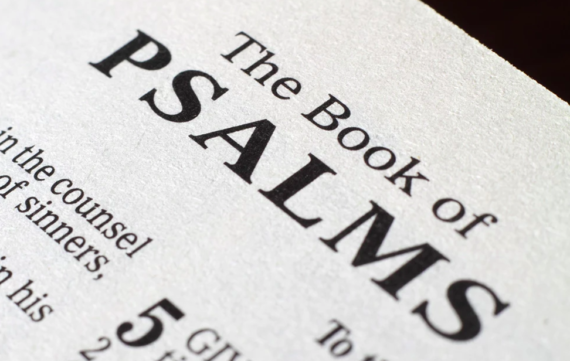This Psalm is a call to worship addressed to all people. The situation is a contrast to the previous psalm. In forty-six we are assured that “God is with us” even if things are going wrong and we are being defeated. But psalm forty-seven seems to reflect a time of success, when Israel ruled other nations.
Its structure is interesting: It opens with a call to praise, “Clap your hands, all peoples! Shout to God with loud songs of joy!” (1).
The word “for” then introduces the reasons for praising the Lord (some versions obscure this by omitting the “for”). “For the LORD, the Most High, is to be feared, a great king over all the earth. 3 He subdued peoples under us, and nations under our feet. 4 He chose our heritage for us, the pride of Jacob whom he loves” (2-4).






The Psalm then returns to a call for praise. “Sing praises to God, sing praises! Sing praises to our King, sing praises! 7For God is the King of all the earth; sing praises with a psalm! (6-7) You may have noticed that the word “for” again introduces reasons for praising the Lord in verse seven. These reasons for praise continue in verses 8 and 9. “God reigns over the nations; God sits on his holy throne. 9 The princes of the peoples gather as the people of the God of Abraham. For the shields of the earth belong to God; he is highly exalted!”
This psalm does not need much analysis or explanation. What it does call for is reflection on why praise is not more common in our lives. We should reflect on what we can do to increase our praise, and on how we can call others to praise.
If the Sons of Korah could see reasons to praise the Lord before Bethlehem or Calvary, Christians certainly should be praising the Lord and calling on others to praise him. Yet, many Christians only worship a few hours a week, some only one hour per week. Some of what we do in these times that we call ‘worship’ is no such thing. Worship sometimes gets crowded out of our assemblies because we try to accomplish so much. We want them to be evangelistic and fellowship opportunities. We want to be edified by the service. These purposes should be accomplished. But they are best achieved when we focus first and foremost on the praise of God.
Yet, our reflections on praise need direction and control. To give order to such reflections, let us review the prominent reasons for praise given in this psalm.
Kingship
God is King. This is the most prominent reason given for why God ought to be praised (2, 6, 7, 8). It is the central thought; all the others relate to it. People in countries with a long history of democracy have a hard time relating to the idea of an absolute ruler who will never have to run for re-election. Christians need to ask, “Who is really on the throne of my life?” “Am I acting like I may or may not choose God?”
Fear of the Lord
God is to be feared (2). This is related to his kingship but is a matter deserving reflection of its own. The concept of “awe” or “fear” of God is too rarely mentioned in our worship and Bible study. Psalm 130:4 seems strange to us.1
We must ask ourselves, “Does my life give any indication of awe?” “Have I become so comfortable with God that I pretend to control him, instead of acknowledging his control over me?” “Have I imagined that He is a tame lion?”
God is sovereign. (3, 8, 9) He is not a vassal king, but the high king to which all other kings must render obeisance (9). He controls the fate of people and nations. We must ask, “Is our God too small?” “Do we act as if the world is out of control?”
More than noise
We need to praise more, and we need to think about why we praise. Without such reflection, praise can become meaningless clapping and shouting.
Verse seven may indicate an awareness of this problem within the psalmist’s mind. The ESV and NIV do not understand it that way. They say “Sing praises with a psalm.” The LXX and the KJV indicate that he is to be praised with “understanding,” not just noise. A third possibility is given in the REB, “with all your skill.” This thought is also very worthy of our consideration. Do we bring the same care, the same attention to using our best efforts, to praising God that we bring to other things in life?
God is to be praised. Praising him demands more than words and ceremonial actions. It demands that our lives really be brought into submission to him. He is King. He is to be feared. He is sovereign. To praise him, we must submit to him.
1 Psalm 130:4 “But with you there is forgiveness, that you may be feared.”

